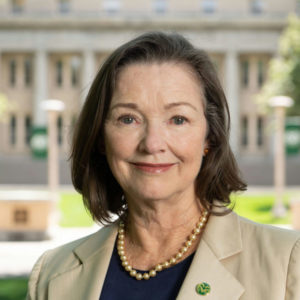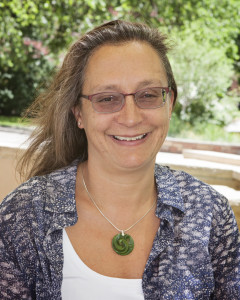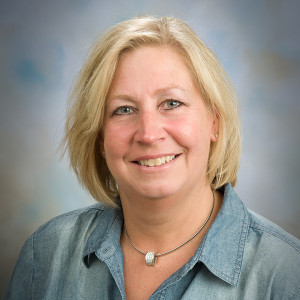
A task force that issued a host of recommendations around improving work conditions for non-tenure-track faculty at Colorado State University has been reconvened by Provost and Executive Vice President Mary Pedersen and will continue its work this spring.
In its second phase, what has been known as the Campuswide Non-Tenure-Track Task Force will continue to look at implementation issues associated with changes to the Academic Faculty and Administrative Professional Manual that were approved by Faculty Council in April 2018. Those include practical matters related to compliance with new policies and procedures and adoption of best practices across the university.

The group will also have a new name, reflecting the language that Faculty Council added to the manual to refer to NTT faculty by appointment type: the Contract, Continuing and Adjunct Faculty, or CCAF, Task Force. Faculty leaders say the name change is largely bureaucratic at this time, but how CSU refers to faculty who are not on the tenure track is a larger and as-yet-unresolved issue. The Faculty Council Committee on Non-Tenure-Track Faculty has agreed to consider this issue with the new task force.
“The CCAF name was selected to reflect a more inclusive description of faculty who contribute to CSU’s mission of access and excellence through their teaching, research and service but who are not pursuing the tenure track,” Pedersen said. “Certainly, we respect those who still have a preference for using the term NTTF, but this task force’s name change acknowledges the need to shift our culture among faculty ranks in building a stronger sense of community.”
Faculty Council approves equal representation for NTT faculty
Faculty Council has passed two measures to ensure that continuing and contract faculty at CSU receive the same representation on the council as tenured and tenure-track faculty.
At its Dec. 1 meeting, the council voted to amend the Academic Faculty and Administrative Professional Manual to count continuing and contract faculty in the calculation of how many at-large members are elected from each of CSU’s colleges and the University Libraries. In addition, faculty leaders voted to amend the manual to make continuing and contract faculty eligible for election to the council by their home departments and colleges.
“This is something I would never have dreamed could happen when I got involved in faculty governance six years ago,” said Jenny Morse, a senior instructor in the Department of Management who chairs the Faculty Council Committee on Non-Tenure-Track Faculty, which proposed the amendments. “Just to be counted feels like a civil rights kind of moment.”
Before this change, continuing and contract faculty could not be elected as departmental representatives to the council, and they were not counted in the apportionment of at-large representatives for each college and the Libraries. The Faculty Council Committee on Faculty Governance collects nominations for at-large candidates and selects those who will stand for election. Faculty Council then votes on those nominees.
Jenny Morse, a senior instructor in the Department of Management who chairs the Faculty Council Committee on Non-Tenure-Track Faculty, explained that NTTF is the term that is most commonly used nationally for advocacy efforts, whereas CCAF is specific to CSU.
Co-chairs named
Pedersen has appointed two task force co-chairs: Vice Provost for Faculty Affairs Sue James and Professor Alex Bernasek of the Department of Economics, who chaired the first task force convened by President Joyce McConnell in Fall 2019. That group’s recommendations on issues such as promotions, service, workload and base salaries were accepted by former Provost Rick Miranda last spring.

Highlights of those changes included:
- Minimum base salaries ranging from $44,000 to $48,000, depending on whether someone has a terminal degree or service component in their position
- A process for CCA faculty to apply for paid professional development release time
- Standards for the CCA faculty promotion process, many of which are more in line with how tenure-track faculty are promoted
- New policies for CCA faculty around concurrent assignments, online teaching and research
- Minimum expectations for service, depending on appointment type and rank
“The motivation for changes to the Faculty Manual regarding NTTF at CSU was to recognize and reward the contributions of faculty who are not on the tenure track to the mission of the university,” Bernasek said. “Staying true to that motivation and ensuring that all faculty are treated as professionals in the work of departments, colleges and the university is very much at the heart of what the task force is about. In many respects, especially when it comes to service, the university is now recognizing work that NTTF have been doing for a long time.”
Larger membership
The membership of the task force has been expanded from 11 to 16, with some returning members from the original group, some new members, and representatives from the Faculty Council Committee on Non-Tenure-Track Faculty (see list of task force members below).
“We see the work of the task force as complementing the work of the Committee on Non-Tenure-Track Faculty,” Bernasek said. “And we also wanted to bring some new voices into this, in particular more faculty voices.”

The group held three open forums on campus last year, and Bernasek and James say the task force will solicit broad input from the CSU community again. They add that a significant part of the group’s work will involve accountability and assessing how well — and how consistently — the earlier recommendations are being implemented at the college and department levels.
“One of the reasons I was so excited to take on the role of vice provost for faculty affairs was to help CCA faculty thrive and work toward my dream of truly having ‘one faculty’ at CSU,” James said.
“I’m grateful to those who are volunteering their service on this task force in support of their colleagues and our CCA faculty,” Pedersen added. “Last year’s task force made great contributions, and I know this new task force will further advance that important work.”
Pedersen’s charge to the new task force will be to look at compensation issues, accountability of new CCAF policies to ensure they are being successfully implemented across campus, complaint/grievance/concern processes, hiring and promotion practices, names and titles for CCAF, understanding the true costs to CSU of contingency and CCAF best practices at other institutions.
The task force is expected to issue its findings and any new recommendations in early June 2021.
Task force members
Alex Bernasek, co-chair
Sue James, co-chair
Sarah Blessinger, College of Liberal Arts human resources
Nick Cummings, central human resources
Jannine Mohr, Office of General Counsel
Pam Jackson, University Communications
Joseph DiVerdi, Faculty Council Committee on Non-Tenure-Track Faculty
Jonathan Carlyon, College of Liberal Arts department head
Gwen Gorzelsky, The Institute for Learning and Teaching
Matt Camper, College of Agricultural Sciences faculty
Jen Aberle, College of Health and Human Sciences faculty
Denise Apodaca, College of Liberal Arts faculty
Lisa Kutcher, College of Business department head
Sam Bechara, Walter Scott, Jr. College of Engineering
Karolien Denef, Office of the Vice President for Research and College of Natural Sciences research CCAF
Diana Prieto, vice president for equity, equal opportunity and Title IX